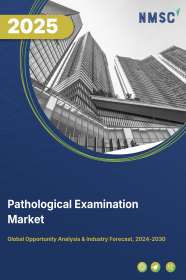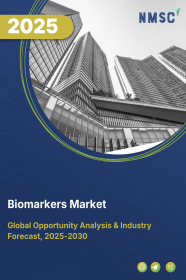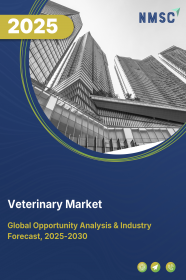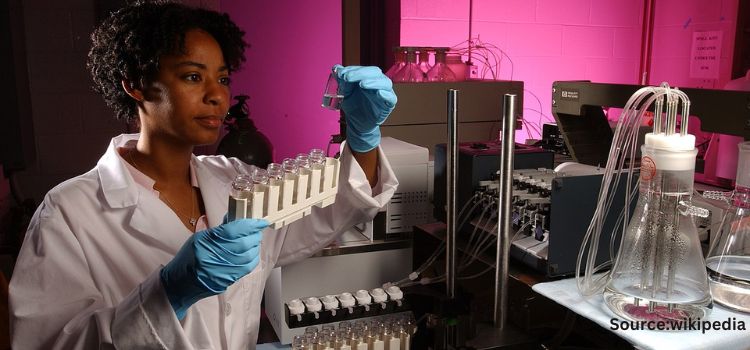
Pathological Examination Market by Type (Conventional pathology and Digital Pathology), by Service (Surgical Pathology, Anatomic Pathology, Cytopathology, Molecular pathology, Clinical Pathology), by Application (Digestive Organs, Blood, and others), by End Users (Hospitals, clinics and Ambulatory Surgical Centers)- Global Opportunity Analysis and Industry Forecast 2024-2030
US Tariff Impact on Pathological Examination Market
Trump Tariffs Are Reshaping Global Business
Market Definition
The global Pathological Examination Market size was valued at USD 333.41 billion in 2023 and is predicted to reach USD 772.79 billion by 2030 with a CAGR of 12.8% from 2024-2030. Pathological examination, also known as pathology testing, is an essential tool used in the diagnosis and treatment of diseases such as cancer.
The examination of tissues and cells collected from the body provides valuable information about the presence, nature, and extent of diseases, which can aid in the development of personalized treatment plans. Pathology tests include various types of tests done on blood, urine, feces, sputum, and swabs taken from the nose and throat. The examination is usually performed by a pathologist or a trained medical professional. The pathology report contains the histologic type of cancer and the grade of the tumor, which refers to how closely the cancer cells resemble normal tissue.
Market Dynamics and Trends
The demand for pathological examination is increasing due to the growing prevalence of chronic diseases such as cancer, cardiac diseases, lung diseases along Type 2 diabetes which accounts for a maximum number of deaths globally.
In addition, the rapid increase in the geriatric population across the world coupled with a high focus on early diagnosis of diseases among the people are expected to foster the pathological examination market growth during the forecasted period.
Moreover, the presence of various key players such as Abbott Pathology and, Roche Ltd, that are adopting various strategies to advance diagnosis processes also influence the pathological examination market.
For instance, in February 2024, in February 2024, Roshe Diagnostics partnered with PathAI to create artificial intelligence (AI) digital pathology algorithms for Roshe's companion diagnostics sector. This collaboration contributes to the progress of precision medicine by integrating AI-based interpretation with companion diagnostics, thereby expanding patient access to tailored treatments.
Furthermore, the adoption of cutting-edge technologies such as expansion microscopy and fluorescent in situ sequencing in diagnostic centers worldwide is a significant factor driving the growth of the pathological examination market. These advanced microscopic techniques have revolutionized cytopathology, enhancing the accuracy of disease detection, diagnosis, and treatment at the cellular level.
However, workforce shortages among pathologists and high expenses are significant constraints hindering the growth of the pathology examination market. The scarcity of pathologists limits the capacity to handle increasing diagnostic demands, while the associated high costs pose financial burdens on healthcare providers and patients alike. These factors impede the expansion of the pathology examination market by limiting access to timely and affordable diagnostic services.
On the contrary, the utilization of digital pathology in disease diagnosis, coupled with the emergence of 3D diagnosis capabilities in pathology, is anticipated to generate lucrative growth prospects for market players in the future. Digital pathology enables the digitization of histological slides and facilitates remote viewing and analysis, streamlining workflow efficiency and improving diagnostic accuracy.
Moreover, the integration of three-dimensional (3D) imaging technologies in pathology offers enhanced visualization of tissue structures, allowing for more comprehensive and precise pathological assessments.
Market Segmentation and Scope of Study
The global pathological examination market is segmented on the basis of type, service, application, end-users, and geography. Based on type, the market is classified into conventional pathology and digital pathology. Based on service, the market is segmented into surgical pathology, anatomic pathology, cytopathology, molecular pathology, clinical pathology.
On the basis of application, the market is categorized into digestive organs, blood, and others. Based on end-users, the market is divided into hospitals, clinics and ambulatory surgical centres. Geographical breakdown and analysis of each of the aforesaid classification includes regions comprising of North America, Europe, Asia-Pacific, and RoW.
Geographical Analysis
North America dominates the global pathological examination market share at present and is expected to continue its dominance throughout the forecast period. This is attributed to advancements in medical research and the presence of well-established healthcare infrastructure within the region, exemplified by institutions such as Jackson Memorial Hospital and Advent Health Orlando.
Moreover, the escalating incidence of chronic diseases such as cancer, cardiovascular disorders, and neurological conditions in North America is increasing the demand for pathological examinations. These examinations are indispensable for early disease detection, precise diagnosis, and the development of personalized treatment plans tailored to individual patient needs.
According to projections by the American Cancer Society, the United States is expected to see a notable surge in new cancer cases, surpassing 2 million in 2024, equating to approximately 5,500 daily diagnoses. This trend is influenced by demographic shifts and a rise in the diagnosis rates of common cancers including breast, prostate, endometrial, pancreatic, kidney, and melanoma in the country. This underscores the pivotal role of pathology methods in North America's healthcare landscape and drives market growth.
On the other hand, the growth of the pathological method market in the Asia Pacific region is primarily driven by the rising population and increasing elderly population in countries such as India, China, and Japan. Japan, for instance, stands out with an estimated 36.23 million individuals aged over 65, as reported by the World Economic Forum in 2023.
This demographic trend underscores the pressing need for comprehensive healthcare services, including pathological examinations, to address age-related diseases and conditions. Furthermore, increasing investments in healthcare diagnostics across the region contribute significantly to the market's expansion.
In India, the healthcare sector witnessed a historic surge in investments, with over USD 4 billion inflows recorded in 2023. Notably, private equity (PE) investments surged by 9-10%, a substantial increase compared to 5% in 2022. Hospitals, including healthcare technology, medical devices, and diagnostics, emerged as dominant investment targets, with over 20 private equity deals totaling USD 3.8 billion.
These developments reflect a growing recognition of the importance of advanced diagnostic services, including pathological examinations, in delivering quality healthcare and addressing the healthcare needs of the region's expanding population.
Competitive Landscape
The pathological examination industry includes several market players, such as Abbott Pathology, F. Hoffmann-La Roche Ltd, Sonic Healthcare, Quest Diagnostics Incorporated, 3DHISTECH Ltd, NeoGenomics Laboratories, Merck KGaA, Becton, Dickinson and Company, Diagnostic Pathology Services, Inc. and Healio. These market players are adopting various market strategies such as collaboration and acquisitions across various regions to maintain their dominance in in the global pathological examination market.
For instance, in March 2022, Roche collaborated with Bristol Myers Squibb in order to advance the personalized healthcare via digital pathology solutions. This collaboration is intended to support the advancement of two assays for use in clinical trials as VENTANA PD-L1 (SP142) Assay and CD8 Assay along with the development and deployment of two new digital pathology algorithms with the aim of improving outcomes for patients.
Also, in December 2021, Sonic Healthcare strategically acquired ProPath, a high quality, medically led anatomical pathology (AP) company. This acquisition is a part of Sonic’s long-term strategy of integrating the disciplines of anatomical pathology and clinical laboratory testing together as a seamless service in the USA.
Key Benefits
-
The report provides quantitative analysis and estimations of the pathological examination market from 2024 to 2030, which assists in identifying the prevailing market opportunities.
-
The study comprises a deep-dive analysis of the current and future pathological examination market trends to depict prevalent investment pockets in the industry.
-
Information related to key drivers, restraints, and opportunities and their impact on the pathological examination market is provided in the report.
-
Competitive analysis of the players, along with their market share is provided in the report.
-
SWOT analysis and Porter's Five Forces model is elaborated in the study.
-
Value chain analysis in the market study provides a clear picture of the roles of stakeholders.
Key Market Segments
By Type
-
Conventional pathology
-
Digital Pathology
By Service
-
Surgical Pathology
-
Anatomic Pathology
-
Cytopathology
-
Molecular Pathology
-
Clinical Pathology
By Application
-
Digestive Organs
-
Blood
-
Others
By End Users
-
Hospitals
-
Clinics
-
Ambulatory Surgical Centers
By Geography
-
North America
-
The U.S.
-
Canada
-
Mexico
-
-
Europe
-
The UK
-
Germany
-
France
-
Italy
-
Spain
-
Denmark
-
Netherlands
-
Finland
-
Sweden
-
Norway
-
Russia
-
Rest of Europe
-
-
Asia-Pacific
-
China
-
Japan
-
India
-
South Korea
-
Australia
-
Indonesia
-
Singapore
-
Taiwan
-
Thailand
-
Rest of Asia-Pacific
-
-
RoW
-
Latin America
-
Middle East
-
Africa
-
Key Players
-
Abbott Pathology
-
F. Hoffmann-La Roche Ltd
-
Sonic Healthcare
-
Quest Diagnostics Incorporated
-
3DHISTECH Ltd
-
NeoGenomics Laboratories
-
Merck KGaA
-
Becton, Dickinson and Company
-
Diagnostic Pathology Services, Inc.
-
Heali
REPORT SCOPE AND SEGMENTATION:
|
Parameters |
Details |
|
Market Size in 2023 |
USD 333.41 Billion |
|
Revenue Forecast in 2030 |
USD 772.79 Billion |
|
Growth Rate |
CAGR of 12.8% from 2024 to 2030 |
|
Analysis Period |
2023–2030 |
|
Base Year Considered |
2023 |
|
Forecast Period |
2024–2030 |
|
Market Size Estimation |
Billion (USD) |
|
Growth Factors |
|
|
Countries Covered |
28 |
|
Companies Profiled |
10 |
|
Market Share |
Available for 10 companies |
|
Customization Scope |
Free customization (equivalent up to 80 working hours of analysts) after purchase. Addition or alteration to country, regional, and segment scope. |
|
Pricing and Purchase Options |
Avail customized purchase options to meet your exact research needs. |

















 Speak to Our Analyst
Speak to Our Analyst




















